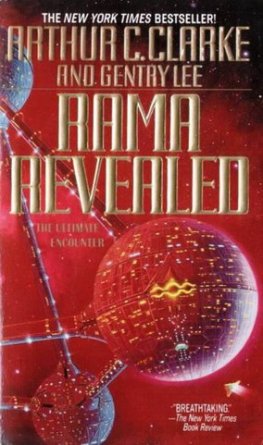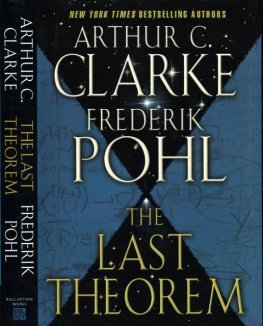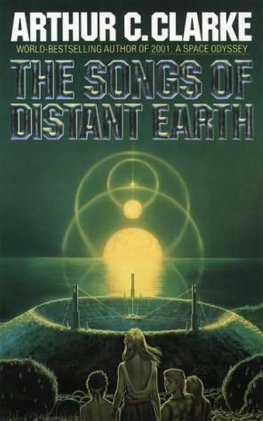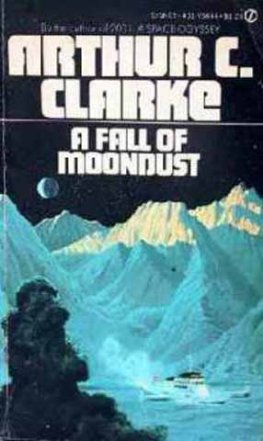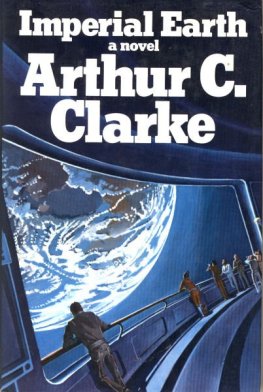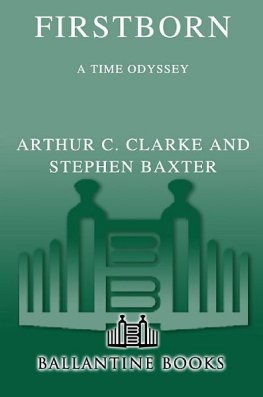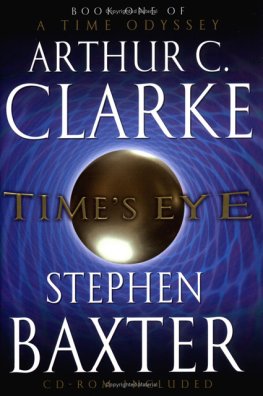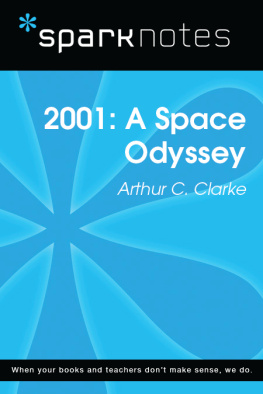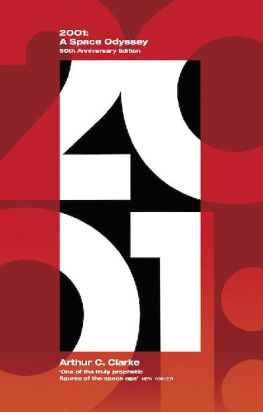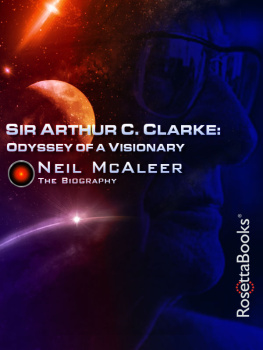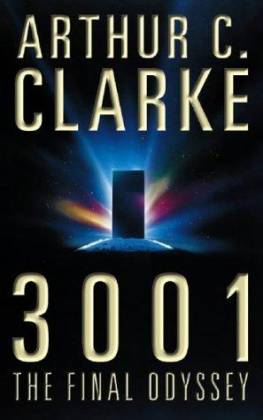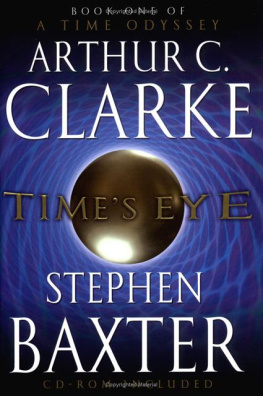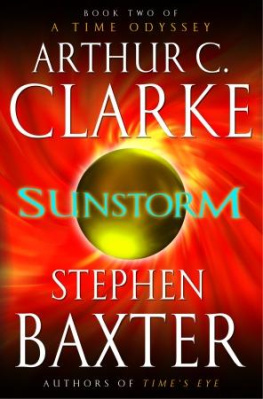Arthur Clarke - 2061: Odyssey Three
Here you can read online Arthur Clarke - 2061: Odyssey Three full text of the book (entire story) in english for free. Download pdf and epub, get meaning, cover and reviews about this ebook. genre: Science fiction. Description of the work, (preface) as well as reviews are available. Best literature library LitArk.com created for fans of good reading and offers a wide selection of genres:
Romance novel
Science fiction
Adventure
Detective
Science
History
Home and family
Prose
Art
Politics
Computer
Non-fiction
Religion
Business
Children
Humor
Choose a favorite category and find really read worthwhile books. Enjoy immersion in the world of imagination, feel the emotions of the characters or learn something new for yourself, make an fascinating discovery.

- Book:2061: Odyssey Three
- Author:
- Genre:
- Rating:4 / 5
- Favourites:Add to favourites
- Your mark:
- 80
- 1
- 2
- 3
- 4
- 5
2061: Odyssey Three: summary, description and annotation
We offer to read an annotation, description, summary or preface (depends on what the author of the book "2061: Odyssey Three" wrote himself). If you haven't found the necessary information about the book — write in the comments, we will try to find it.
2061: Odyssey Three — read online for free the complete book (whole text) full work
Below is the text of the book, divided by pages. System saving the place of the last page read, allows you to conveniently read the book "2061: Odyssey Three" online for free, without having to search again every time where you left off. Put a bookmark, and you can go to the page where you finished reading at any time.
Font size:
Interval:
Bookmark:
Arthur C. Clarke,
2061: ODYSSEY THREE
Author's Note
Just as 2010: Odyssey Two was not a direct sequel to 2001: A Space Odyssey, so this book is not a linear sequel to 2010. They must all be considered as variations on the same theme, involving many of the same characters and situations, but not necessarily happening in the same universe.
Developments since Stanley Kubrick suggested in 1964 (five years before men landed on the Moon!) that we should attempt 'the proverbial good science-fiction movie' make total consistency impossible, as the later stories incorporate discoveries and events that had not even taken place when the earlier books were written. 2010 was made possible by the brilliantly successful 1979 Voyager flybys of Jupiter, and I had not intended to return to that territory until the results of the even more ambitious Galileo Mission were in.
Galileo would have dropped a probe into the Jovian atmosphere, while spending almost two years visiting all the major satellites. It should have been launched from the space shuttle in May 1986, and would have reached its objective by December 1988. So around 1990 I hoped to take advantage of the flood of new information from Jupiter and its moons...
Alas, the Challenger tragedy eliminated that scenario; Galileo now sitting in its clean room at the Jet Propulsion Laboratory must now find another launch vehicle. It will be lucky if it arrives at Jupiter merely seven years behind schedule.
I have decided not to wait.
Colombo, Sri Lanka,
April 1987
I THE MAGIC MOUNTAIN
1 The Frozen Years
'For a man of seventy, you're in extremely good shape,' remarked Dr Glazunov, looking up from the Medcom's final print-out. 'I'd have put you down as not more than sixty-five.'
'Happy to hear it, Oleg. Especially as I'm a hundred and three as you know perfectly well.'
'Here we go again! Anyone would think you've never read Professor Rudenko's book.'
'Dear old Katerina! We'd planned a get-together on her hundredth birthday. I was so sorry she never made it that's what comes of spending too much time on Earth.'
'Ironic, since she was the one who coined that famous slogan "Gravity is the bringer of old age."'
Dr Heywood Floyd stared thoughtfully at the ever-changing panorama of the beautiful planet, only six thousand kilometres away, on which he could never walk again. It was even more ironic that, through the most stupid accident of his life, he was still in excellent health when virtually all his old friends were dead.
He had been back on Earth only a week when, despite all the warnings and his own determination that nothing of the sort would ever happen to him, he had stepped off that second-storey balcony. (Yes, he had been celebrating: but he had earned it he was a hero on the new world to which Leonov had returned.) The multiple fractures had led to complications, which could best be handled in the Pasteur Space Hospital.
That had been in 2015. And now he could not really believe it, but there was the calendar on the wall it was 2061.
For Heywood Floyd, the biological clock had not merely been slowed down by the one-sixth Earth gravity of the hospital; twice in his life it had actually been reversed. It was now generally believed though some authorities disputed it that hibernation did more than merely stop the ageing process; it encouraged rejuvenation. Floyd had actually become younger on his voyage to Jupiter and back.
'So you really think it's safe for me to go?'
'Nothing in this Universe is safe, Heywood. All I can say is that there are no physiological objections. After all, your environment will be virtually the same aboard Universe as it is here. She may not have quite the standard of ah superlative medical expertise we can provide at Pasteur, but Dr Mahindran is a good man. If there's any problem he can't cope with, he can put you into hibernation again, and ship you back to us, COD.'
It was the verdict that Floyd had hoped for, yet somehow his pleasure was alloyed with sadness. He would be away for weeks from his home of almost half a century, and the new friends of his later years. And although Universe was a luxury liner compared with the primitive Leonov (now hovering high above Farside as one of the main exhibits at the Lagrange Museum) there was still some element of risk in any extended space voyage. Especially like the pioneering one on which he was now preparing to embark.
Yet that, perhaps, was exactly what he was seeking even at a hundred and three (or, according to the complex geriatric accounting of the late Professor Katerina Rudenko, a hale and hearty sixty-five.) During the last decade, he had become aware of an increasing restlessness and a vague dissatisfaction with a life that was too comfortable and well-ordered.
Despite all the exciting projects now in progress around the Solar System the Mars Renewal, the establishment of the Mercury Base, the Greening of Ganymede there had been no goal on which he could really focus his interests and his still considerable energies. Two centuries ago, one of the first poets of the Scientific Era had summed up his feelings perfectly, speaking through the lips of Odysseus/Ulysses:
Life piled on life
Were all too little, and of one of me
Little remains; but every hour is saved
From that eternal silence, something more,
A bringer of new things: and vile it were
For some three suns to store and hoard myself,
And this grey spirit yearning in desire
To follow knowledge like a sinking star,
Beyond the utmost bound of human thought.
'Three suns', indeed! It was more than forty:
Ulysses would have been ashamed of him. But the next verse which he knew so well was even more appropriate:
It may be that the gulfs will wash us down:
It may be we shall touch the Happy Isles,
And see the great Achilles, whom we knew.
Though much is taken, much abides; and though
We are not now that strength which in old days
Moved earth and heaven; that which we are, we are;
One equal temper of heroic hearts,
Made weak by time and fate, but strong in will
To strive, to seek, to find, and not to yield.
'To seek, to find...' Well, now he knew what he was going to seek, and to find because he knew exactly where it would be. Short of some catastrophic accident, there was no way in which it could possibly elude him.
It was not a goal he had ever consciously had in mind, and even now he was not quite sure why it had become so suddenly dominant. He would have thought himself immune to the fever which was once again infecting mankind for the second time in his life! but perhaps he was mistaken. Or it could have been that the unexpected invitation to join the short list of distinguished guests aboard Universe had fired his imagination, and awakened an enthusiasm he had not even known he possessed.
There was another possibility. After all these years, he could still remember what an anticlimax the 1985/6 encounter had been to the general public. Now was a chance the last for him, and the first for humanity to more than make up for any previous disappointment.
Back in the twentieth century, only flybys had been possible. This time, there would be an actual landing, as pioneering in its way as Armstrong's and Aldrin's first steps on the Moon.
Dr Heywood Floyd, veteran of the 2010-15 mission to Jupiter, let his imagination fly outwards to the ghostly visitor once again returning from the deeps of space, gaining speed second by second as it prepared to round the Sun. And between the orbits of Earth and Venus the most famous of all comets would meet the still uncompleted space-liner Universe, on her maiden flight.
Font size:
Interval:
Bookmark:
Similar books «2061: Odyssey Three»
Look at similar books to 2061: Odyssey Three. We have selected literature similar in name and meaning in the hope of providing readers with more options to find new, interesting, not yet read works.
Discussion, reviews of the book 2061: Odyssey Three and just readers' own opinions. Leave your comments, write what you think about the work, its meaning or the main characters. Specify what exactly you liked and what you didn't like, and why you think so.

